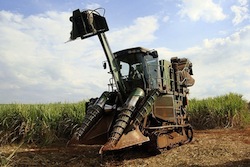 The National Bank for Economic and Social Development (BNDES) and the Funding of Innovation and Research (FINEP) have announced a new program to encourage agricultural innovation for the Brazilian sugarcane industry. The goal of PAISS is to spur innovation and research that achieves gains in increasing productivity while lowering production costs. The PAISS complements the similar plan launched by BNDES and FINEP in 2011.
The National Bank for Economic and Social Development (BNDES) and the Funding of Innovation and Research (FINEP) have announced a new program to encourage agricultural innovation for the Brazilian sugarcane industry. The goal of PAISS is to spur innovation and research that achieves gains in increasing productivity while lowering production costs. The PAISS complements the similar plan launched by BNDES and FINEP in 2011.
Enabling investments in agricultural innovation contributes to a renewal of the gains in productivity and to reductions in production costs. “It’s a step that can help us reach a new virtuous circle of investment to expand the production capacity of the sugarcane industry,” said Elizabeth Farina, the president of the Brazilian Sugarcane Industry Association (UNICA).
Farina noted that 60 percent of the production costs of ethanol and sugar lies in agricultural production. “The agricultural costs are already high and are in the ascendant, unlike the costs of industrial processing of sugarcane, which has been the subject of research and investment that has resulted in lower costs,” Farina explained.
UNICA data show that during the boom years of the sugarcane industry, between 2002 and 2010, the cost of agricultural production amounted to U.S. $15 per tonne while today this cost has doubled to nearly U.S. $30 per tonne.
Farina noted that the industry has adopted new and advanced technologies with unique speed, as observed in the process of mechanization of the harvest. This is leading to the elimination of burning the cane fields. “But the fact is that in the effort to mechanize the industry literally changed processes without research by adapting existing technology used for manually harvesting sugarcane. Over five years, the industry has adapted to the sugarcane machines, not the machines to sugarcane. It will probably take another five years to find better answers,” added Farina.

